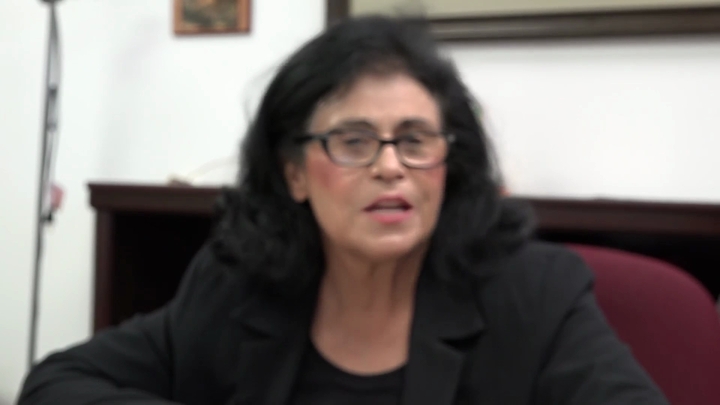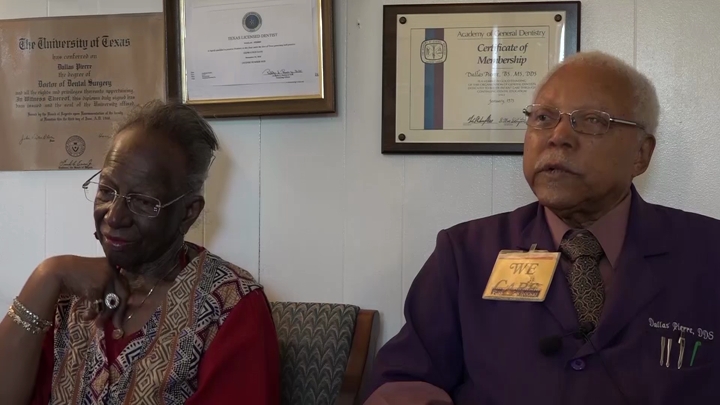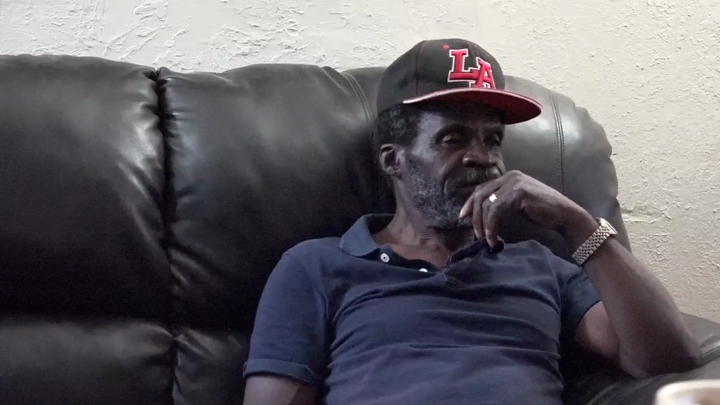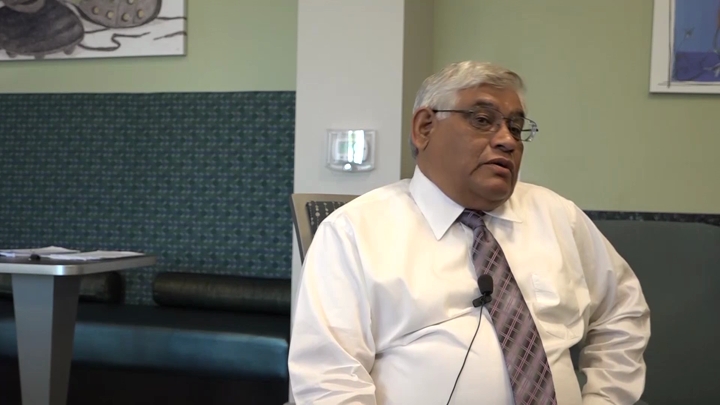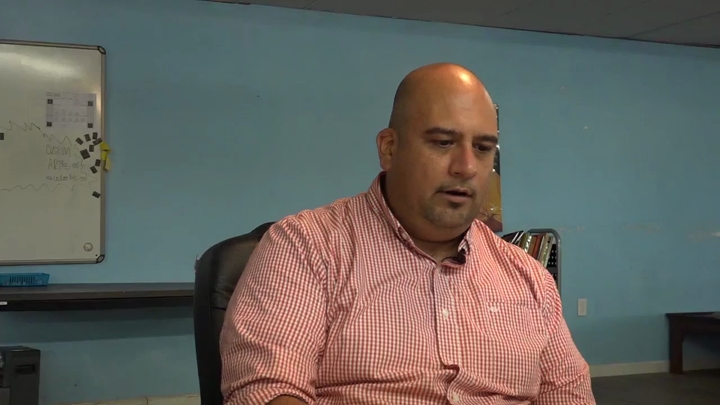Montejano / Biographical Information
sign up or sign in to add/edit transcript
Montejano: I was born in Del Rio, Tx. April 28, 1950, but I think we moved down to San Antonio before I was a year old. So, basically we have lived in San Antonio almost all my life. Grew up in the west side of San Antonio. We lived in several places when we first came. People cannot believe I remember these things but I do. We lived on Merida Street, close to the train tracks. And I remember that because when the train went by it shook our house. And I remember that because I was still a kid. My mother said, “That’s impossible. You cannot remember that.” I said, “I remember that.” I would start crying. Anyway, from there we moved to the projects. We moved to the Mira Sol homes. San Juan Mira Sol. Actually, there were two families living together. My aunt and my uncle- they moved to San Angelo later- but I remember we did not have any furniture. We had a heater and a mattress. For, do not ask me how many kids, because there were three of us at that time. My father, my mother, my aunt, my uncle, and all their kids. They had- let’s see- my cousins- they had like six kids. So, but I don not think all of them were born yet because Jimmy and Danny were the youngest. So, I do not think they were around back then. And then we moved to this “so called” new neighborhood off of Lobrano – close to the Menchaca Courts- and that’s where we settled. I lived there for like twenty-six years of my life. That’s in the Edgewood district. There was nothing around there. Even General McMullin was not around there. I wrote a story about how they build General McMullin- and General McMullin was supposed to be a direct path to Kelly Air Force Base where everybody worked. I mean it’s like the whole city. You had it made if you worked at Kelly Field. And, previously, you know, they had to go all the way around. So, when they cut that it destroyed our plane grounds. You know- it was puro monte- it was all brushy. We use to go in there and play. So, if you want to talk about activism, it started way back then. Because we were trying to stop them from building the streets and bulldozing it. And we would go and put rocks on the tractors. They would dig out rocks and we would put them back. You know, we were young and little, and you know we were angry. Because nobody asked us “can we could cut through here.” This was our neighborhood. No one had fences at that time. All of a sudden, everyone started to put up a fence because the street was coming through and people felt it was important. That was in the Edgewood district now. Arionus: About how old were you when this happened? Montejano: Oh gosh, I think it was in 1958 or -9, but I may have been younger. Arionus: That makes sense because it was around 1960. Arionus: Tell me about your family. Montejano: I have three brothers. I am the only daughter. I am the second oldest. David is the oldest. Me, then Johnny Jr., then Jerry. Jerry is the trailer. I am thirteen years older than he is. He is the surprise brother. Arionus: Can you tell me a little bit about your mother and father? What did they do? Montejano: My parents from when they were younger, this is from what they tell us, they were both migrant workers. I know my mother was a migrant worker. She had a fourth grade education. Arionus: What was her name? Montejano: Mariel Luisa Montejano and my father’s name is Juan Montejano. I know they both works as migrants. My mother more than my dad. I don’t know about that. They both did the seasonal thing. Then, he went to school. He went to high school and went on to college on a VA. My grandfather pulled his family out because they use to throw rocks at them when they were going to school. That was in Del Rio. He just got upset and pulled them out. He said that they are going to work. He had all girls and one son. I came from a very long line of strong women because they worked like men, back then. Arionus: Who would throw rocks? Montejano: I guess the other kids would throw rocks at my aunts and one uncle. Arionus: Do you think they were Anglo kids? Montejano: I do think they were Anglo, yeah. My mother was very, whew. It was gringo. “Que esperas de los gringos.” I was like okay, whatever, there not all bad mom. “Pero como quiera son gringos. Ellos tienen ortra cultura.” You know what they say. Yes, I do. But they are not all bad.
| Interview | Interview with Diana Montejano |
| Subjects | Family › Extended Family Networks |
| Family › Parenting | |
| Family › Childhood Experiences | |
| Migration › Migrant Labor | |
| Housing › Neighborhoods | |
| Housing › Low Income Housing | |
| Geography › Geographical Descriptions | |
| Geography › Places (Cities, Towns, Neighborhoods, and Intersections) | |
| Historic Periods › 1951-1955 | |
| Historic Periods › 1956-1969 | |
| Geography › Barrios | |
| Family › Siblings | |
| Tags | Kelly Air Force Base |
| sign up or sign in to add/edit tags | |
| Interview date | 2016-06-29 |
| Interview source | CRBB Summer 2016 |
| Interviewees | Montejano, Diana |
| Interviewers | Arionus, Steve |
| Sinta, Vinicio | |
| Locations | San Antonio, TX |
| Del rio, TX | |
| Duration | 00:06:46 |
| Citation | "Biographical Information ," from Diana Montejano oral history interview with Steve Arionus and Vinicio Sinta, June 29, 2016, San Antonio, Civil Rights in Black and Brown Interview Database, https://crbb.tcu.edu/clips/4209/biographical-information-35, accessed March 04, 2026 |


